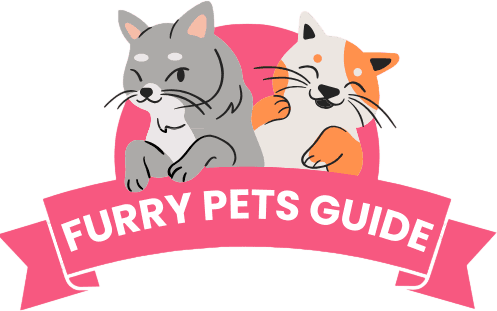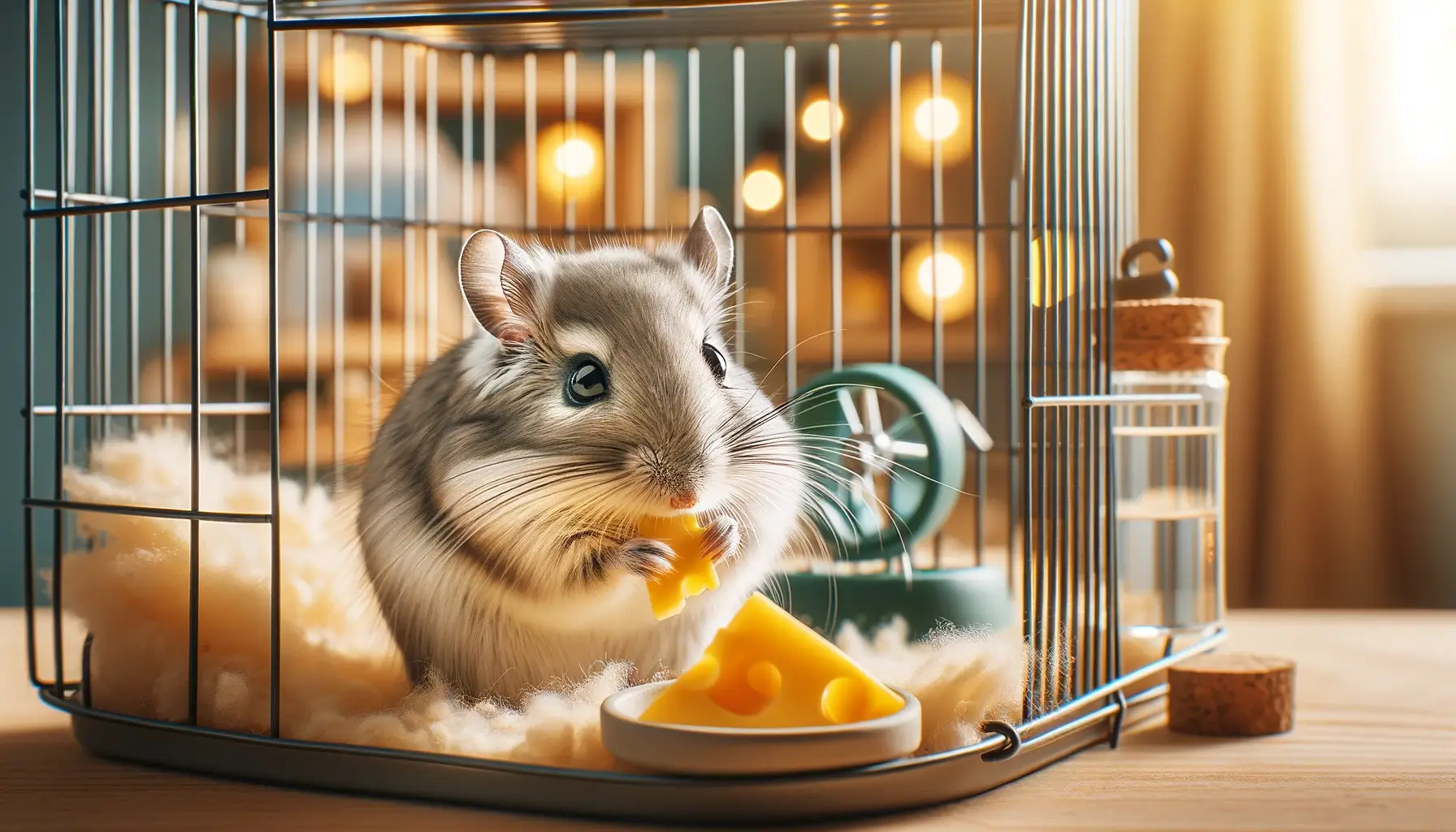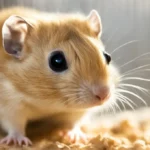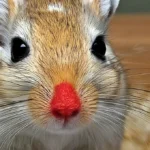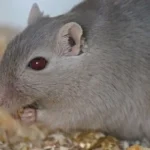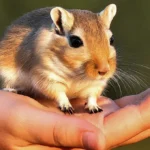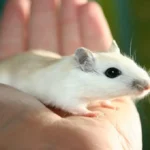Gerbils are charming, curious creatures that make delightful pets. Known for their playful nature and minimal care requirements, they’ve won the hearts of pet owners worldwide. A crucial aspect of keeping a gerbil healthy and happy is understanding its dietary needs.
Unlike other pets, gerbils have specific dietary restrictions that must be adhered to, ensuring they lead a long, vibrant life. This guide delves into one such dietary query: Can gerbils eat cheese?
Can Gerbils Eat Cheese?
At first glance, offering a tiny piece of cheese to your gerbil might seem like a harmless treat. After all, cheese is nutritious for humans, packed with protein, calcium, and essential vitamins. However, when it comes to gerbils, the answer isn’t straightforward.
Gerbils are naturally lactose intolerant, meaning their digestive systems are not equipped to handle dairy products efficiently. This intolerance stems from their evolution and natural habitat, where dairy is not a part of their diet.
While a small nibble of cheese won’t immediately harm your gerbil, it’s crucial to understand the potential risks and why cheese should be offered sparingly, if at all.
| Nutrient | Amount |
|---|---|
| Calories | 402 kcal |
| Protein | 24.9 g |
| Total Fat | 33.1 g |
| Saturated Fat | 21.1 g |
| Cholesterol | 105 mg |
| Carbohydrates | 1.3 g |
| Sugars | 0.5 g |
| Fiber | 0 g |
| Sodium | 621 mg |
| Calcium | 721 mg |
Types of Cheese and Gerbil Health

If you decide to treat your gerbil to cheese, opt for varieties that are lower in lactose, such as cheddar or Swiss. These cheeses undergo a maturation process that reduces their lactose content, making them slightly safer for lactose-intolerant pets.
However, “safer” does not mean “safe,” and these should only be given in minimal amounts on rare occasions.
Cheeses to Avoid
High-lactose cheeses, such as cottage cheese or ricotta, should be avoided entirely. These soft cheeses contain higher levels of lactose and can lead to digestive distress, including bloating, diarrhea, and discomfort in gerbils.
Impact on Gerbil Health
Introducing cheese into a gerbil’s diet can lead to several health issues, primarily due to their inability to process lactose. Symptoms of lactose intolerance in gerbils can include digestive upset, leading to dehydration and malnutrition if not addressed promptly.
Moreover, cheese is high in fat and can contribute to obesity in gerbils, further complicating their health.
Feeding Cheese to Gerbils: A Delicate Balance
Introducing cheese to your gerbil’s diet should be done with caution and awareness of the potential health risks. If you choose to offer cheese as a treat, it’s imperative to follow these guidelines to minimize any adverse effects:
- Small Portions: A tiny piece of cheese, no larger than a pea, is more than enough for your gerbil. This small amount ensures that any lactose ingested is minimal, reducing the risk of digestive upset.
- Infrequent Treats: Cheese should not be a regular part of your gerbil’s diet. Offering a cheese treat once every two weeks is a safe frequency to avoid health issues.
- Monitor for Adverse Reactions: After feeding your gerbil cheese, observe them for signs of digestive distress, such as lack of appetite, bloating, or diarrhea. If any of these symptoms occur, discontinue cheese treats immediately.
Healthy Alternatives to Cheese
Considering the risks associated with feeding cheese to gerbils, it’s beneficial to explore healthier snack options. These alternatives can provide the nutritional benefits without the potential for lactose intolerance issues:
- Fruits and Vegetables: Small pieces of apples (without seeds), bananas, broccoli, carrots, cauliflower, cucumber, and lettuce can be excellent treats. These should be consumed in moderation to avoid digestive difficulties.
- Grains and Seeds: A mix of grains and seeds designed for gerbils can also serve as a nutritious snack, closely mimicking their natural diet in the wild.
By focusing on these healthier alternatives, you can ensure your gerbil receives a balanced diet that meets their nutritional needs without the risks associated with dairy products.
FAQs
Can gerbils eat dairy products other than cheese?
Generally, it’s best to avoid giving gerbils any dairy products, including cheese, due to their lactose intolerance. Dairy can cause digestive issues in gerbils. Instead, focus on providing a diet rich in grains, vegetables, and occasional fruits, which better suits their nutritional needs and digestive capabilities.
How often can I treat my gerbil with cheese?
Cheese should be considered a rare treat for gerbils, if offered at all, due to their lactose intolerance. A tiny piece once every two weeks is the maximum recommended frequency. However, opting for healthier, gerbil-safe treats is a better way to ensure their dietary satisfaction and health.
Can gerbils eat bread?
Gerbils can eat small amounts of plain bread as an occasional treat, but it should not be a regular part of their diet. Bread offers little nutritional value to gerbils and can lead to obesity and digestive issues if consumed in excess. Always prioritize a balanced diet of seeds, grains, and fresh vegetables for your gerbil’s health.
Are there any cheese-flavored treats safe for gerbils?
Many cheese-flavored commercial treats for pets are dairy-free and might be safer for gerbils. However, always check the ingredients for lactose or dairy products and consult with a veterinarian before introducing new treats to your gerbil’s diet.
Conclusion
While the idea of sharing a tiny piece of cheese with your gerbil might be tempting, it’s essential to prioritize their health and dietary needs over the novelty of feeding them human foods.
Gerbils have specific nutritional requirements, and their diet should mainly consist of grains, seeds, and fresh produce suitable for their digestive systems.
By choosing healthy alternatives and understanding the risks associated with dairy products, you can ensure your gerbil enjoys a varied, balanced diet that supports their well-being.
